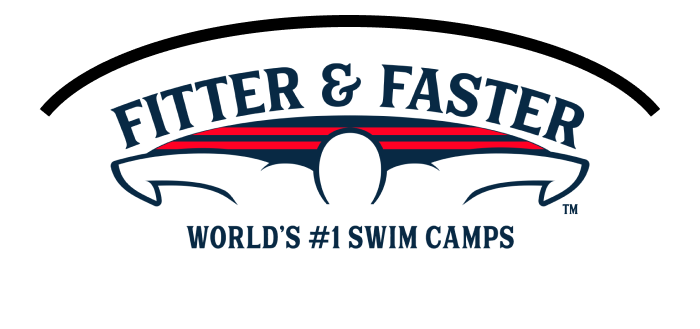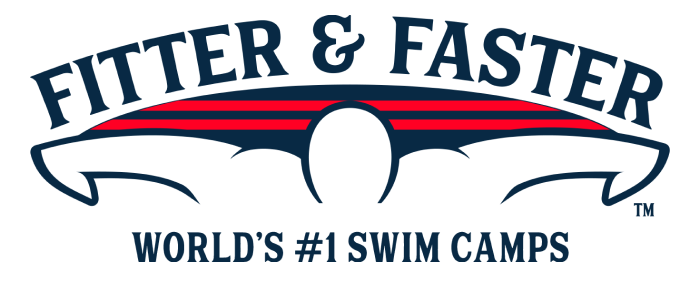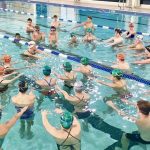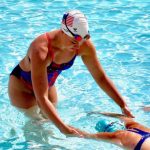Past Clinic: Practical Performance Physiology Series- A Zoom Course For Swim Coaches
ONLINE COURSE, EST
A description of what was covered at this past clinic is below the upcoming clinics.
Upcoming Swim Clinics and Camps
Within 250 miles of ONLINE COURSE, EST.
Past Clinic
Introduction
One of the world's foremost experts on human performance as it relates to swimming, Dr. Josh White, will be conducting a live & interactive 4-part Zoom Course for Swim Coaches: Practical Performance Physiology - From Understanding Energy Systems to Taper.
PRACTICAL PERFORMANCE PHYSIOLOGY
Part 1: Energy System Physiology & Training (Tuesday, June 3)
Part 2: Season Planning (Tuesday, June 10)
Part 3: Practice Writing (Tuesday, June 17)
-> Practice Writing includes a 2-hour class AND a 1-hour Discussion Session that will be scheduled with you and happen in small groups on June 20.
Part 4: Tapering (Tuesday, June 24)
Small Class Sizes:
Each class in the course is limited to only 18 participants to encourage interaction between the coaches and active discussion and learning! You can purchase individual class or save with the "Entire Course Bundle".
Leading The Series:
Teaching this Physiology Series is Dr. Josh White. Dr. White is widely recognized world-wide as one of the leading minds on human performance as it relates to competitive swimming. Dr. White has a Ph.D. in Human Performance from the Counsilman Center for the Science of Swimming at Indiana University. He has more than twenty years of coaching experience including at the University of Michigan where he served as Associate Head Coach for many years including the 2013 NCAA Championship team. His rare combination of education and coaching success has made him well known within the elite ranks of coaching as one of the great minds of the sport - bridging the gap between theoretical knowledge and practical application.
Suggested Participants:
Experienced coaches looking to refresh their knowledge and young coaches being introduced to this information for the first time will benefit from these classes. This series is designed to give swim coaches essential knowledge to maximize their coaching abilities. We will give participating coaches tools to evaluate and develop training, team building, and beyond. We will take the approach of foundational learning to enable coaches to go beyond imitating things that other "more experienced or accomplished" coaches have done - and instead cultivate your own unique coaching style!
Select a curriculum below
Energy System Physiology & Training (Tuesday, June 3)
Understanding how the body produces energy is crucial to understanding the impact of the training you administer to your swimmers. Step beyond knowing a "good set" to understanding the overall impact of the set and its place in the training goals for your team. We will cover the physiology of energy systems to give you the information that you need as a swimming coach without getting lost in complex terminology. You will learn how the energy systems interact and how to work each system so that you can create targeted season plans and practices.
- Energy System Physiology: We will cover the three energy systems that power the body during exercise. This includes the immediate energy source (anaerobic alactic) from the ATP-CP system that serves as a rechargeable battery for muscle cells, as well as the two that create energy from nutrients: glycolysis (anaerobic lactic) and oxidative metabolism (aerobic).
- Energy System Interactions: The vast majority of swimming events occur during time frames when both the anaerobic and aerobic systems are highly active. Understanding how these systems interact is crucial to developing effective training. It is also perhaps the least well understood physiological concept by coaches.
- Sprint to Distance Applications: We will discuss different types of training from sprint to distance and how to understand and quantify them with knowledge of energy systems.
- Age group to Elite Applications: Energy systems change and develop with age. This class will cover these changes along with how to maximize this knowledge in training. This can also help you understand times when it may be more beneficial to determine your training groups based on age versus ability.
- Expanded Physiological Knowledge: The course will also touch on related physiological concepts such as cardiovascular, respiratory, and muscular physiology.
Season Planning (Tuesday, June 10)
The root of this course is understanding your physiological approach to season planning. However, a strong season plan can do so much more to positively affect performance and team building. Communicating the framework of the season plan will unite your coaching staff and athletes in the purpose of the day to day grind. A strong season plan expands beyond training. It takes into account all of the educational and practical facets of the athlete experience and performance - think psychology, school & competition calendar, team building, and all the other activities young people are involved with. With all the responsibilities you have as a coach, having a plan for your season is essential to keep you and everyone else in your organization on track.
- Comprehensive Plan: A well developed season plan can include training in and out of the pool, practice and meet schedule, team building activities and any other activities that are a part of your program.
- Communication: Not only does a well designed season plan help with organization, but it also aids communication with other coaches, athletes, and parents.
- Level of Specificity: Creating an effective season plan requires finding a balance in the level of detail. If a plan is too general, it fails to provide enough guidance . If a plan is too specific it can feel constraining to adaptation and creativity.
- Formatting: One of the greatest challenges of a season plan is finding a format that is easily digestible and can be understood in one document. We will share several examples of season plan formats to provide inspiration for creation or refinement of your plan.
Practice Writing (Tuesday, June 17)
Learn how to write practices that are packed with purpose and fun. We will start with a deep dive into designing sets that hit your energy system target and expand to including the novelty and challenge that swimmers crave. Unite technique and training into a cohesive approach that builds good habits while you work. We will also include logistical tips and tricks that allow you to accomplish your goals with the space and groups you have. This course will have two sessions. The first is a "Traditional Class" on April 22nd, April 23rd or June 17th packed with information. In the second 1 hour session on April 24th, April 25th or June 20th you will write and submit workouts for discussion in small groups.
- Hitting Your Energy System Target: Several factors contribute to whether you are hitting your energy system target. The combination of work/rest ratio (or from a practical perspective the interval), the length of each swim repetition, and the overall length of your set will determine which energy system you are working. Understanding how to adjust these three factors both independently and together to get your desired work is both science and art. You can also add variety and creativity to your workouts by working in different energy systems throughout a set or workout. This can be achieved through sets such as descending, ascending, and active rest sets to name a few.
- Working Technique & Training Together: There is no need for the age-old debate of technique vs. training, these concepts are inextricably linked. In order to hold great technique, you not only need the skill but also strength and fitness. There are a number of great ways to work technique in the midst of training, developing both at the same time.
- Building Great Habits and Accountability: Good habits make it easier for swimmers to make the right choices versus the wrong ones. We will cover the best ways to build great habits and how to help your swimmers hold themselves and one another accountable.
- Stroke Specificity: When do you need to work strokes differently and when can you do the same set for every stroke? We will discuss similarities and contrasts in training different strokes. Additionally, we will review practical ways to work a variety of strokes in the same space.
- Distance Specificity: As swimmers mature, they begin to develop different physiological strengths. They also begin to specialize in races of different lengths. There is a time when it becomes beneficial to vary your training based on the physiology of the athletes and/or their racing focus. We will discuss how to balance training an athlete’s physiology and their race focus. We will also cover when to begin this deviation and how to write effective sets across the range of athletes on your team and all of their events!
- Practical Suggestions: Theoretical understanding is nothing without application. You need to actually do it - try new things! The course will be centered around providing practical ideas that will have you writing your best and most effective workouts ever.
TAPERING (Tuesday, June 24)
Stop second-guessing your taper—step into your championship meet with confidence! Striking the right balance between recovery and maximizing the benefits of hard training can be challenging for many coaches. It’s easy to overlook the impact of mental performance on race results, yet training deficiencies are often the first to be blamed. Tapering is one of the most common sources of doubt for both athletes and coaches. In this course, you’ll explore the science behind various tapering strategies and learn how to apply that knowledge to design the optimal taper for your swimmers in any situation.
- Physiology: One of the challenges of taper is that different systems in the body recover at different rates. For example, the nervous system can take a long time to recover and the cardiovascular system can detrain quickly. Understanding the recovery period for each system is a great base of knowledge to start planning your taper.
- Length of Taper: One key factor in taper efficacy is the overall length of the taper. Since the goal of tapering is performance, exercise physiologists refer to it instead as peaking. The peak of performance is not as sharp as many fear with gradual increases and then decreases in performance. The Olympics are now a 9 day pool event with several athletes competing excellently on both the first and last days.
- Pattern of Taper: There are a number of effective methods of tapering, such as an exponential taper or a drop taper. However, each has key elements that need to be understood to take the guesswork out of peak performance.
- Work Prior to Taper: One of the frequently overlooked factors in a taper is an evaluation of the period and level of work that precedes your taper. If you have been training for 9 months without resting, it will be different than 3 months of training. The taper will need to be different if you are tapering off of the highest workload of your season or a phase of lower workload with higher quality.
- Factors in Taper: The appropriate taper pattern and length depend on a number of factors. We will discuss taper as it relates to age, gender, and event profile. We will also discuss practical ways to determine individual differences in taper needs using information such as body type, tracking metrics, and even multiple end of season meets.
SUGGESTED PARTICIPANTS: These coaching clinics are suitable for both experienced coaches looking to refresh their knowledge and aspiring coaches who are new to the information! CLINIC SESSION TIMES: Energy Systems Physiology & Training:
- Tue June 3 at 12:15-2:15 pm EST.
- Tue June 10 at 12:15-2:15 pm EST.
- Tue June 17 at 12:15-2:15 pm EST.
- Practice Writing includes a 2-hour class AND a 1-hour Discussion Session that will be scheduled with you and happen in small groups on June 20.
- Tue June 24 at 12:15-2:15 pm EST.
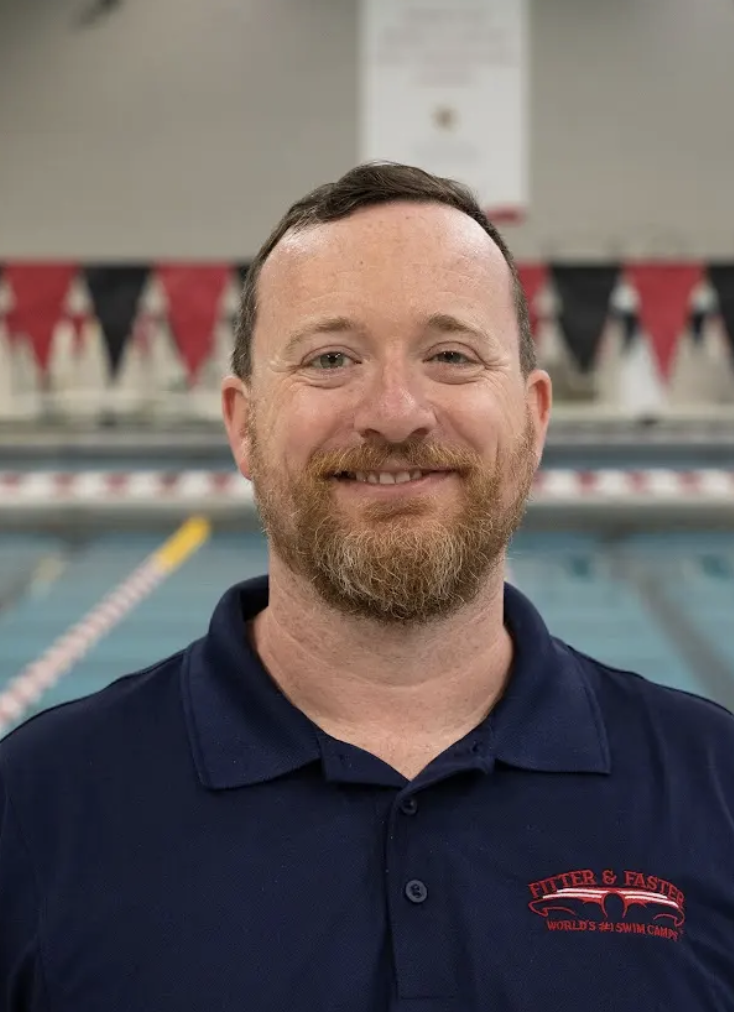
Josh White
Dr. Josh White, with over 20 years of coaching experience—including 15 as Associate Head Coach at the University of Michigan—brings both expertise and passion to his clinics. He coached at the 2012 Olympics for Barbados, served on USA Swimming’s international staffs, and led athletes to seven U.S. Open and American records. With a Ph.D. in Human Performance from Indiana University’s Counsilman Center for the Science of Swimming, Dr. White blends deep scientific knowledge with engaging, technique-driven coaching that connects swimmers to the “why” behind each skill. He also oversees curriculum development and our Zoom Education Series, continuously enhancing our educational reach.
Search all of our clinics...or request a clinic in your area


